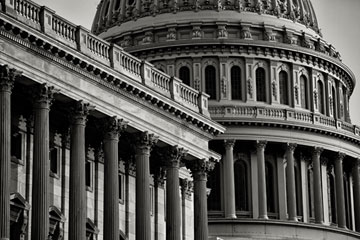
Correction Appended: Sept. 12, 2013
In early 2011, the federal government's top watchdogs found themselves with yet another crisis on their hands. The nation's biggest banks had been accused of wrongly foreclosing on vast numbers of Americans. Investigating every complaint would require an enormous amount of money and manpower; some 4.4 million borrowers were potentially affected. Billions in payouts from titans Bank of America, Wells Fargo and Citibank were at stake, not to mention up to $125,000 for each affected homeowner--as well as the credibility of federal regulators.
So the regulators punted. Julie Williams, chief counsel for the Office of the Comptroller of the Currency (OCC), the primary regulator for many big banks, argued that private contractors could review the foreclosures, sampling paperwork for errors rather than investigating every claim, according to regulators familiar with the discussions. Banks would then compensate victims. Despite opposition from Sheila Bair, chair of the Federal Deposit Insurance Corporation charged with maintaining public confidence in the U.S. financial system, the plan went into effect in April 2011. Twenty months later, it collapsed in failure. By January of this year, the OCC canceled the program as complaints from borrowers mounted. The banks reached a $9.3 billion settlement to provide a blanket distribution of cash to homeowners with little regard to the specifics of each case. Regulators found themselves atoning for the plan in front of Congress. Williams was forced out of the OCC.
The episode ended well for some: private consultants made huge profits. Half of the fees the banks paid them--nearly $1 billion--went to a single company: Promontory Financial, a Washington-based firm that has emerged as something of a shadow regulator. And in early 2013, Williams was hired as a managing director at Promontory, a position that has previously paid more than $1 million in salary and bonuses.
Congress passed President Obama's sweeping financial-reform bill, the Dodd-Frank Wall Street Reform and Consumer Protection Act of 2010, in the wake of near total economic collapse. The motivation behind the landmark legislation was simple: Never again. But three years on, the reform bill's shortcomings are many, and one of them is its growing reliance on private regulators to oversee the nation's banking system. In place of publicly accountable examiners working for the government, private bank oversight has become the norm, along with some of the same hallmarks of the pre-crash era: byzantine regulations that few but the experts can understand, outsize influence by a handful of firms with deep links to both banks and the government and a revolving door between Washington and Wall Street still spinning like a top.
